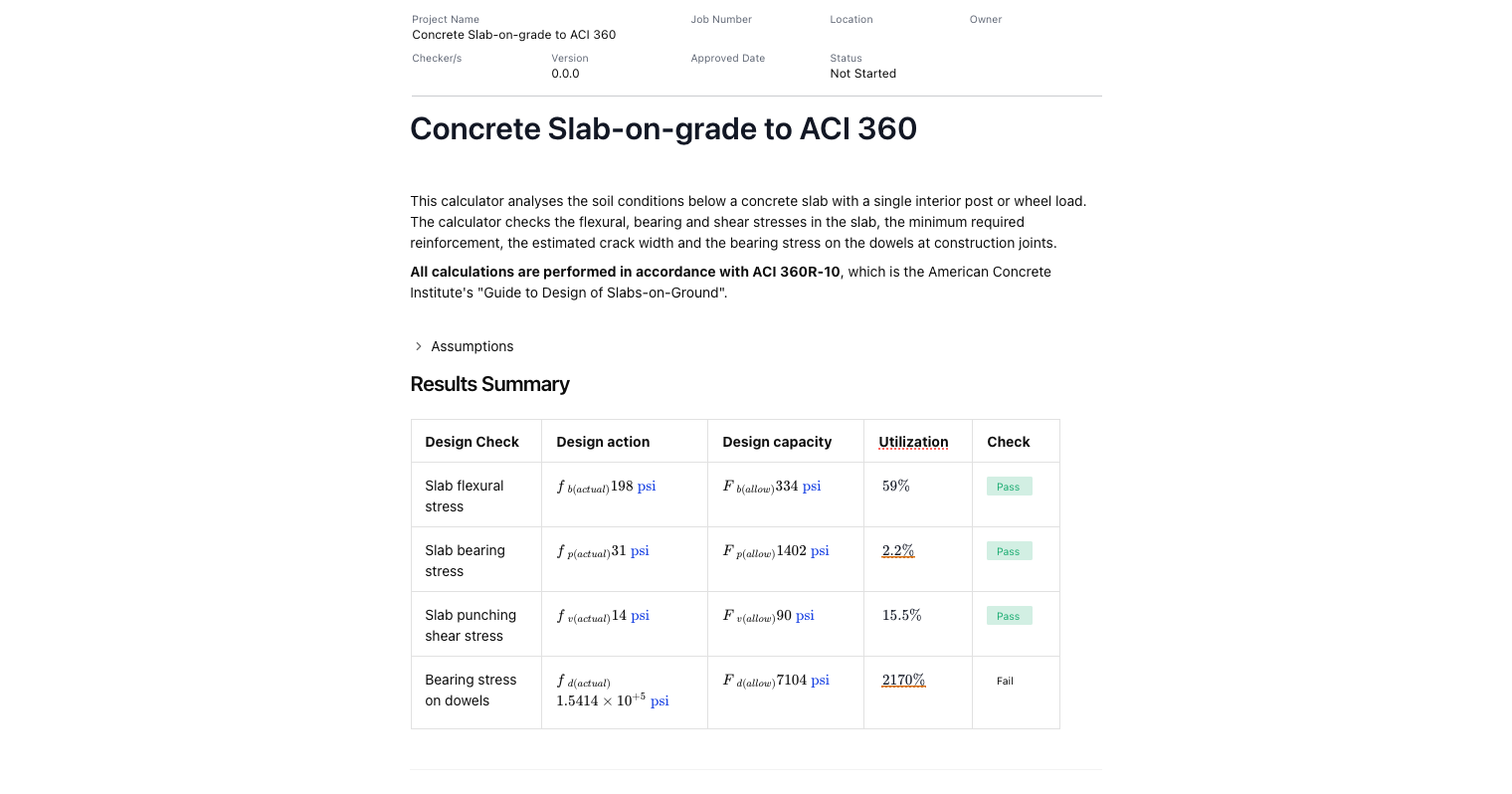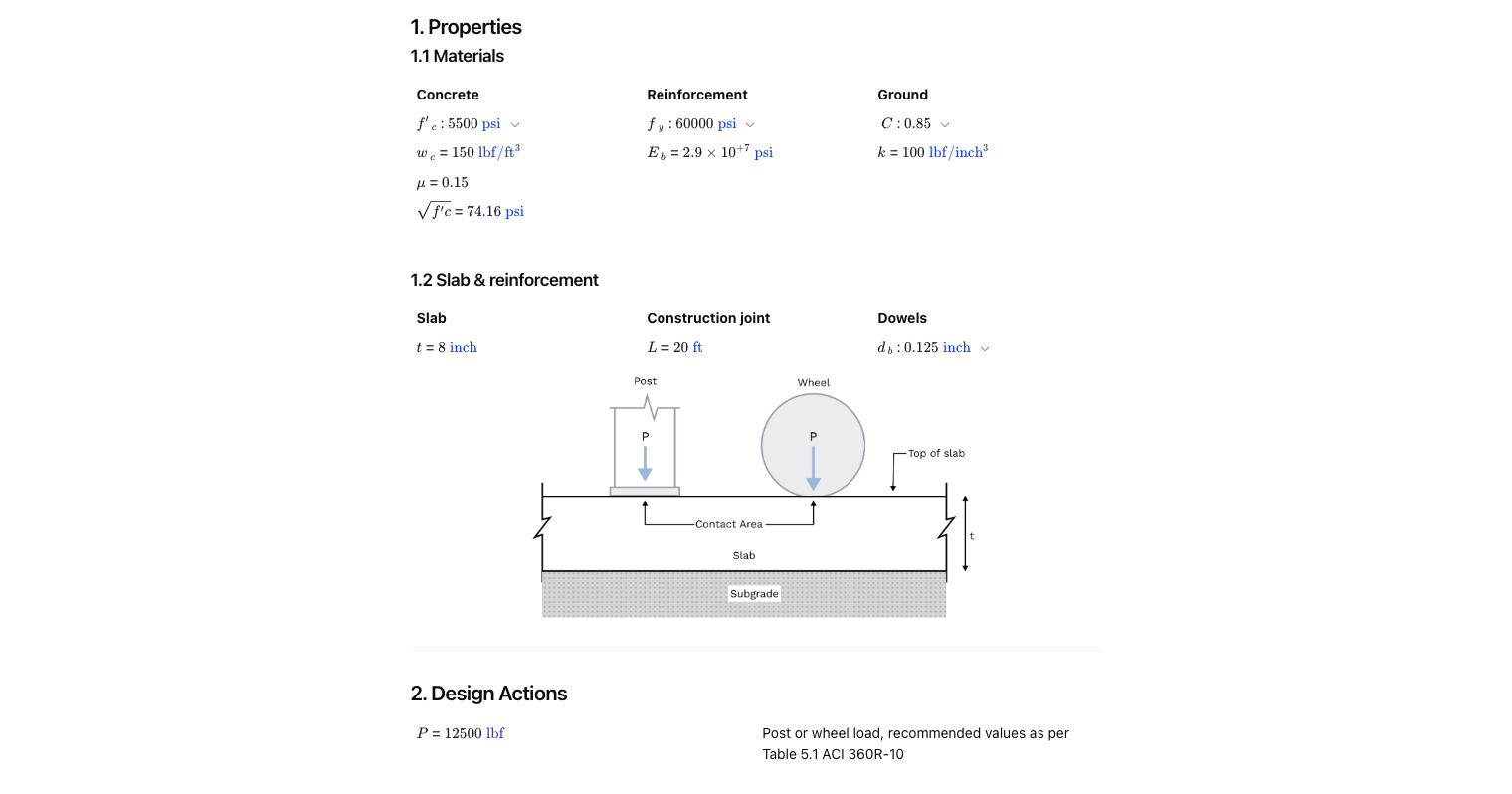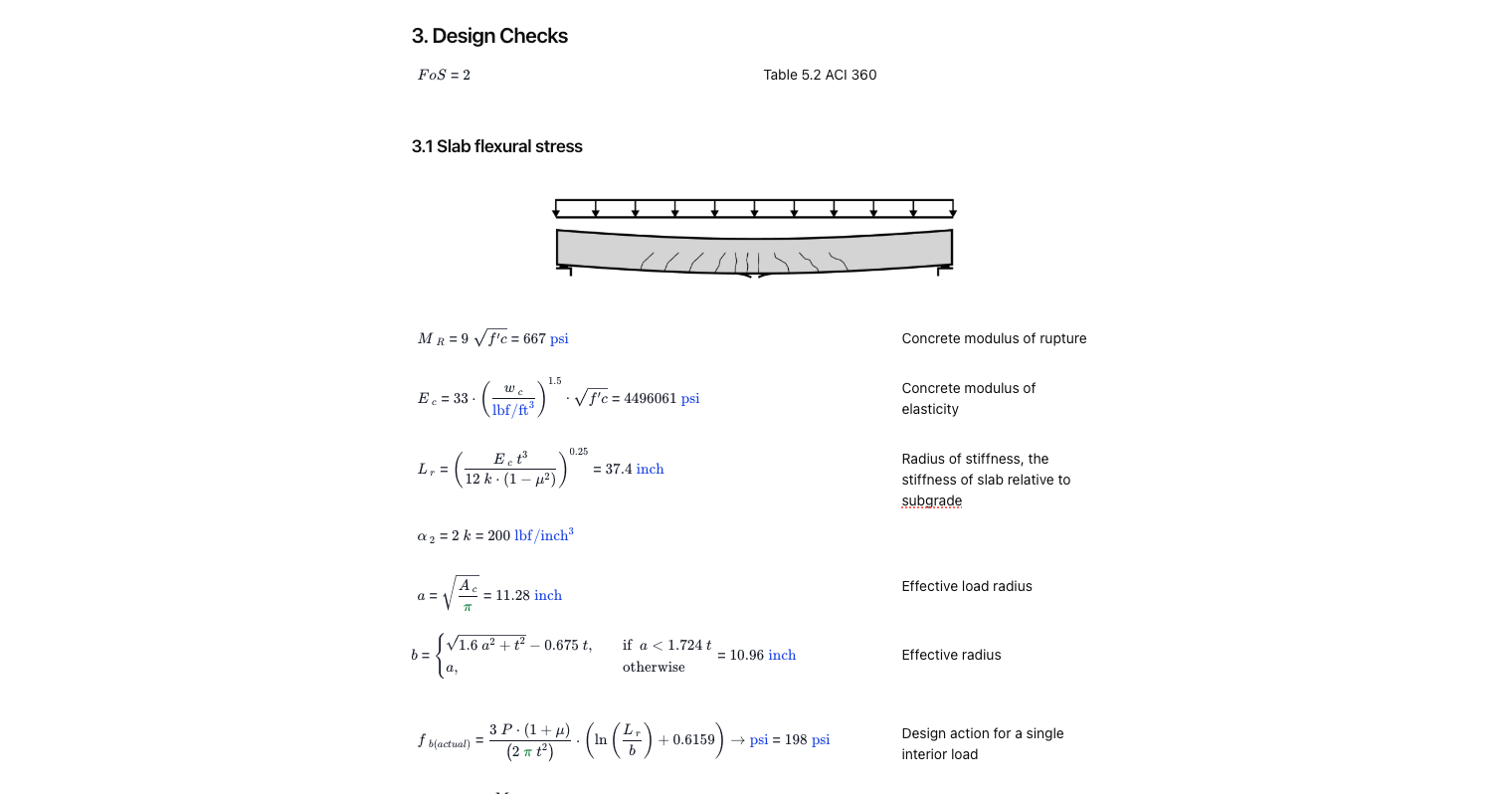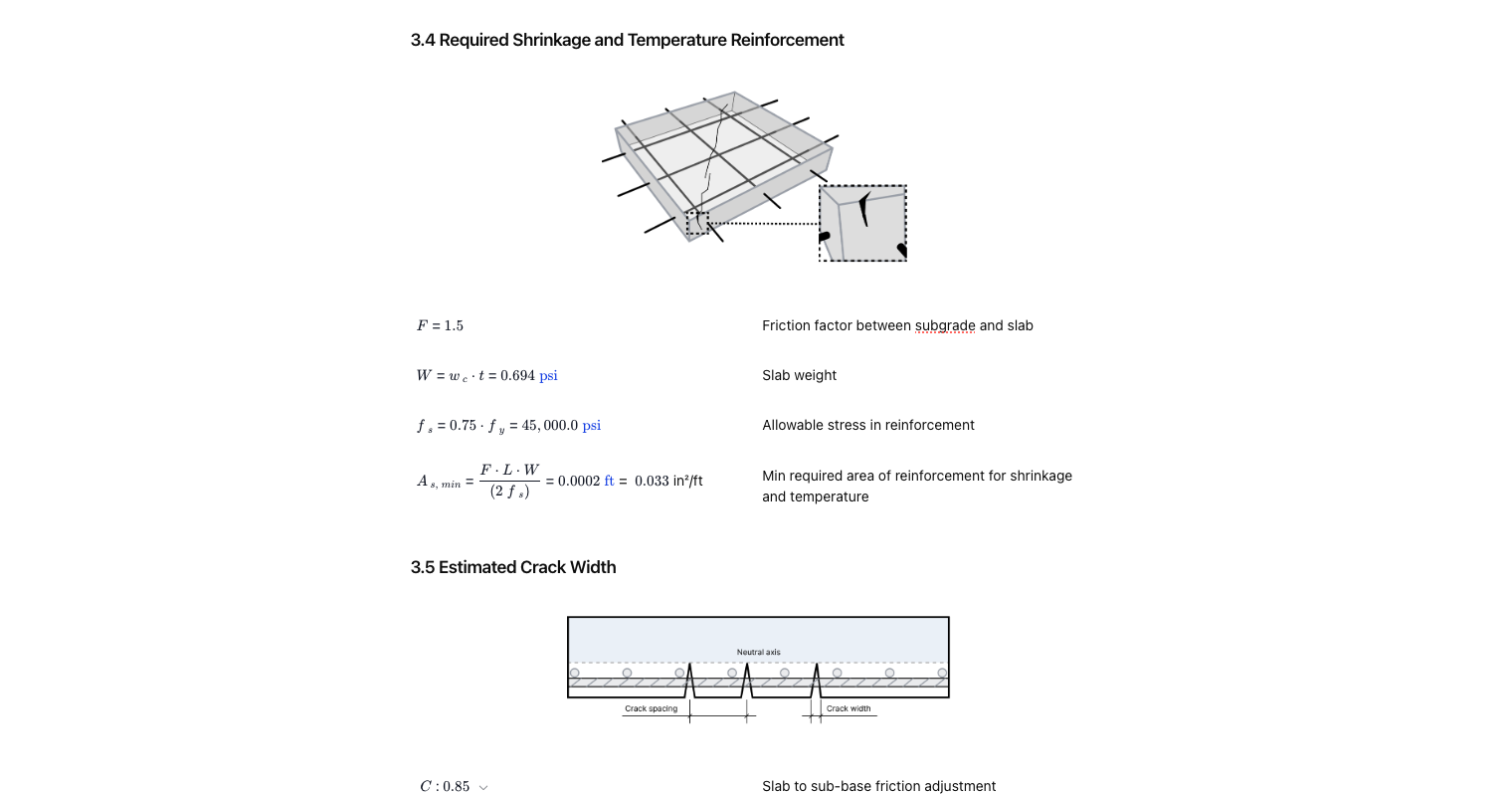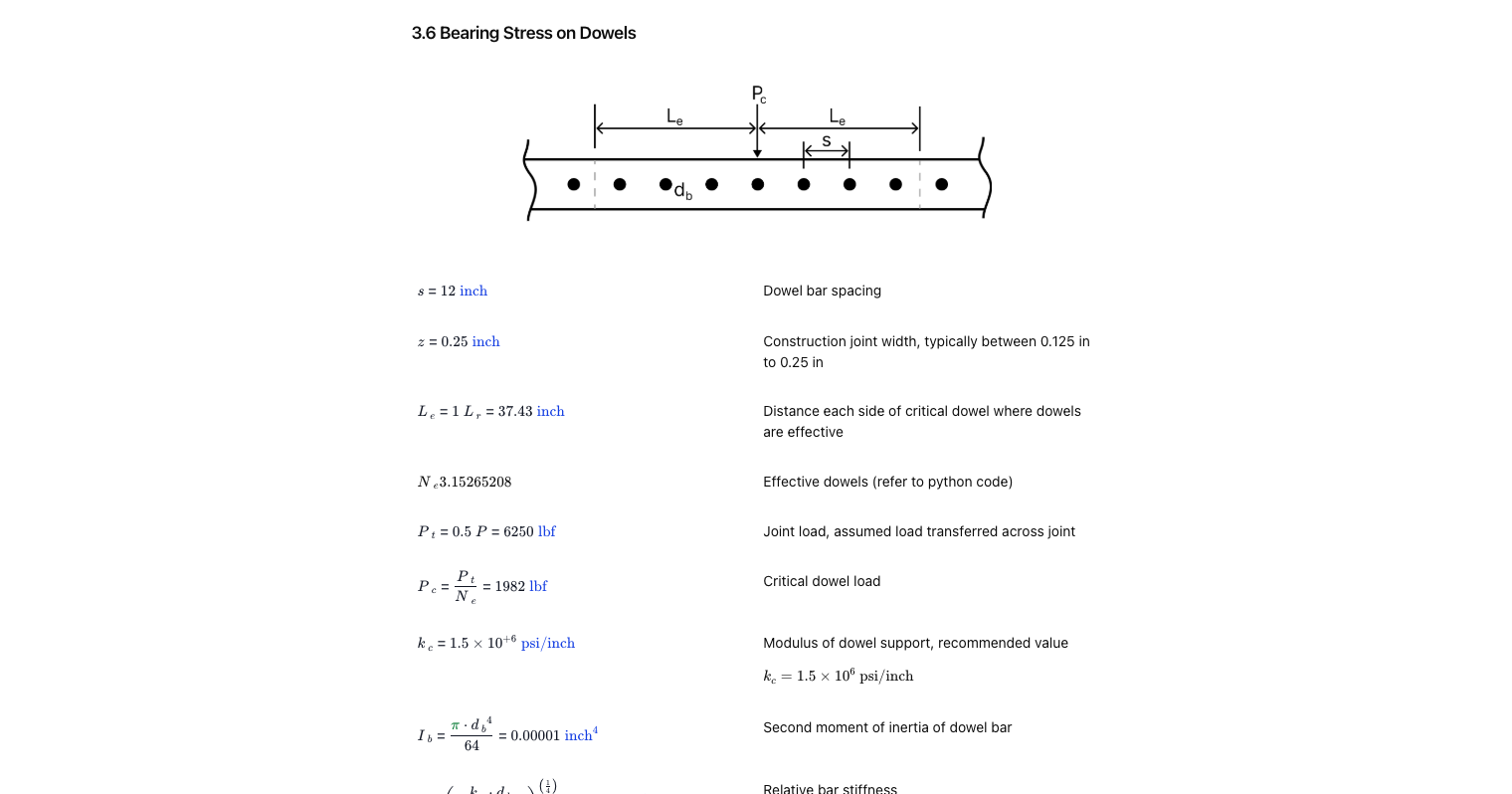Free Concrete Slab-on-Grade Design Tool to ACI 360R-10. Step-by-step, engineering-grade tool with downloadable report.

This template is not available yet. You can sign up and create it yourself!
Or let us know if you'd like to be notified when it’s ready:
About this 'Slab-on-Grade Design Calculator'
This Slab-on-Grade calculator streamlines the foundation design process according to the ACI 360R-10 guidelines. It calculates the minimum slab thickness, reinforcement details, and crack width based on underlying ground conditions and soil characteristics. It evaluates flexural, bearing, and shear stresses to establish the minimum slab thickness, required reinforcement, and estimated crack width. Additionally, it verifies the bearing stress on dowels at construction joints in compliance with the ACI 360R-10 guidelines.
This calculator is ideal for:
- Structural Engineers: Quickly determine concrete slab specifications, ensuring compliance with slab foundation requirements.
- Civil Contractors: Accurately estimate materials and optimize construction methods for slab on grade construction.
- Engineering Students: Understand the complexities involved in designing slab foundations and evaluating ground-supported slab behavior.
Efficiently design slab foundations with this calculator, minimizing structural problems and ensuring low maintenance through precise, reliable results.
For more comprehensive knowledge on this topic, please see the in-depth resource: Concrete Slab-on-grade Design: American Standard ACI 360
General info on Slab-On-Grade Design
Soil and Ground Conditions
Slab on grade design depends heavily on soil-bearing capacity, moisture content, and modulus of subgrade reaction. Evaluating ground conditions ensures proper slab thickness, reduces potential for cracking, and maintains foundation stability.
Reinforcement Requirements
Reinforcement, including wire mesh or rebar, significantly improves tensile strength, reduces cracking, and ensures the durability of the slab foundation. Proper reinforcement supports the integrity of slab on grade foundations, managing structural stresses effectively.
Load Considerations
Concrete slabs must support building loads, including loads from load bearing walls and floors. Accurate load estimation ensures the slab foundation is designed with adequate thickness and reinforcement, preventing structural issues and excessive deformation.
Thermal Considerations
Heat loss control, through proper insulation and heat ducting in slab on grade construction, enhances comfort in living spaces and reduces energy consumption. Addressing thermal considerations prevents mold growth and maintains stable indoor conditions.
Common Calculation Errors to Avoid
- Underestimating Soil Conditions: Ignoring detailed soil evaluations can lead to inadequate slab thickness and eventual structural problems like cracking.
- Inadequate Reinforcement: Skipping appropriate reinforcement methods such as wire mesh or incorrect dowel spacing can lead to significant structural failures.
- Ignoring Drainage Systems: Neglecting drainage solutions can cause moisture-related issues, compromising foundation walls and creating mold problems.
- Improper Edge Treatment: Incorrect slab edge designs and improper treatment at slab edges can increase susceptibility to cracking and structural degradation.
Engineering templates
Common calculators
Design guides
FAQs
What is the primary advantage of slab-on-grade foundations?
Slab-on-grade foundations are economical, quick to construct, and typically low maintenance. They provide a stable base for structures by being poured directly onto prepared ground.
How does slab thickness affect foundation performance?
Proper slab thickness ensures adequate support of building loads, prevents cracking, and contributes significantly to long-term durability and structural performance.
Why is drainage crucial in slab on grade construction?
Effective drainage systems prevent moisture accumulation beneath the slab, mitigating potential issues like mold growth, structural degradation, and foundation settlement.
What materials are commonly used for slab-on-grade construction?
Concrete reinforced with wire mesh or rebar is commonly used. Additional materials may include insulation layers, vapor barriers, and drainage components to enhance overall performance.
Summary and References
Efficient slab on design calculations ensure reliable slab on grade foundations, balancing structural integrity and cost-effectiveness. Proper evaluation of ground conditions, reinforcement requirements, and load considerations leads to robust slab foundation designs.
References:
Learn about the benefits of using CalcTree on engineering projects!

